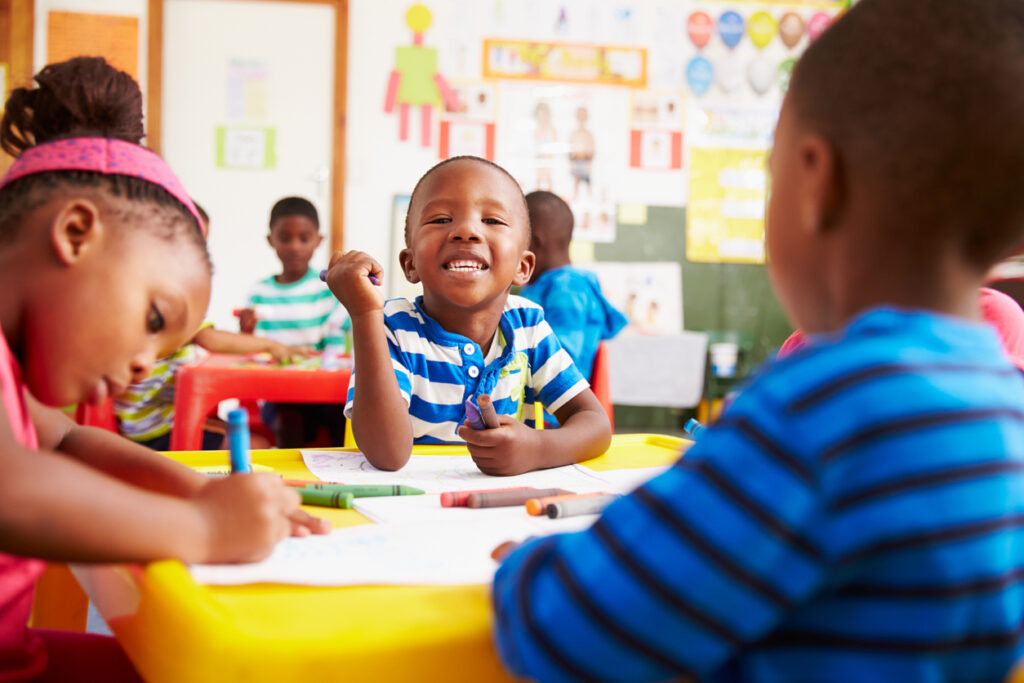by Melanie Tracy

Early childhood education is essential for infant and toddler development, but many Early Head Start families face hard choices. High-quality child care is hard to find and often unaffordable. With a continuum of prevention and intervention strategies, the goal is to reach Columbus children and families who need support.
Since 2015, The Ohio State University Early Head Start Partnership Program (OSU-EHS) has served as a comprehensive model of education and support for children and families from households with low incomes. The program serves as a buffer to prevent and address childhood trauma, hunger, health disparities, and other outcomes associated with living in poverty, which disproportionately affect children of color. This involves examining and understanding where inequities exist and committing to culturally competent and racially affirming practices.
To that end, OSU-EHS has built much momentum over the last 12 months through newly established home visiting and prenatal programs made possible by a $10 million federal expansion grant. The efforts by home visitors and a prenatal educator are helping 30 families navigate the challenges of educating their children from home and supporting 25 pregnant women throughout their pregnancy in order to deliver a healthy newborn. Whether learning about prenatal health, child development, parenting skills, or connecting to essential community resources, the families in these programs are finding the support they need at a critical time in their lives. Last year’s grant also enabled the program to add 38 child care center slots and 10 new family child care home slots located in priority zip codes. This increase combined with home visiting and prenatal programs allows EHS to serve 64% more families.
While the challenges of these times can feel overwhelming, the OSU-EHS team of education coaches along with behavioral and developmental specialists are a constant presence in Early Head Start classrooms throughout Central Ohio. They practice with teachers to enhance their skill sets, understand and prevent challenging behaviors, and identify possible developmental needs in their young students. Also vital to the success of the program is the work of family specialists who act as lifelines to families in helping them achieve their goals, reduce barriers to success, and bridge the gap between school and home.
And it’s working. Early Head Start children show significantly better social-emotional, language, and cognitive development. They are more likely to be immunized and receive services if they have a diagnosed disability. The collaboration of university and community partners, child care providers, and governing boards contribute significantly to these positive outcomes. These outcomes show that Early Head Start is working toward achieving its goal to create better communities for all children by embracing diversity and inclusion, upholding principles of social justice, and working to eliminate inequities that limit early learning opportunities.

